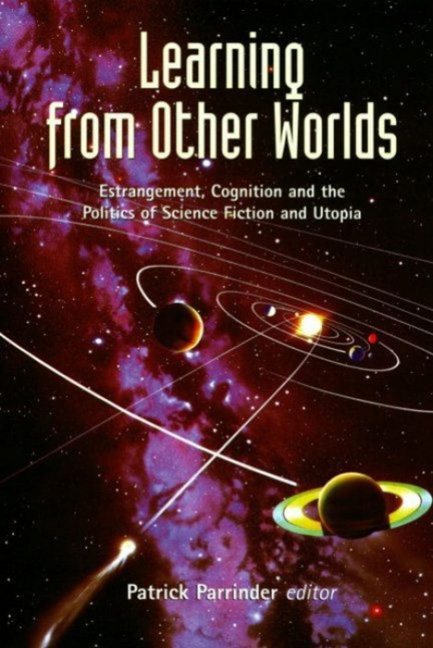Book contents
- Frontmatter
- Contents
- Acknowledgements
- Contributors
- Introduction: Learning from Other Worlds
- Part I Science Fiction and Utopia: Theory and Politics
- Part II Science Fiction in its Social, Cultural and Philosophical Contexts
- Afterword: With Sober, Estranged Eyes
- Darko Suvin: Checklist of Printed Items that Concern Science Fiction (with Utopian Fiction or Utopianism, and a Few Bordering Items)
- Bibliography
- Index
Afterword: With Sober, Estranged Eyes
- Frontmatter
- Contents
- Acknowledgements
- Contributors
- Introduction: Learning from Other Worlds
- Part I Science Fiction and Utopia: Theory and Politics
- Part II Science Fiction in its Social, Cultural and Philosophical Contexts
- Afterword: With Sober, Estranged Eyes
- Darko Suvin: Checklist of Printed Items that Concern Science Fiction (with Utopian Fiction or Utopianism, and a Few Bordering Items)
- Bibliography
- Index
Summary
And then all of a sudden this evidence appears, on the one hand, that I no longer have time to try several lives. I have to choose my last life, my vita nuova; and on the other hand, I have to leave this tenebrous state where the wear and tear of repeated work and mourning have conducted me.
Barthes, 1978A passing emperor once saw a peasant planting dates and oculating a date tree, though this bears fruit only after a hundred years. The emperor was amazed and asked the peasant, Little man, in whose interest are you planting? The poor peasant answered, Your Grace, for god and those born after.
Anonymous sixteenth-century German anecdoteThrough the Deepening Shadows
Whatever is stable and established evaporates, whatever is sacred is desecrated, and people are finally forced to consider with sober eyes their position in life and their mutual relationships.
The Communist Manifesto, 1848If You Read This Book for Three Hours, Forty Jumbo Jets Will Have Crashed in That Time
One night recently I couldn't sleep and on the well-supplied television set of my rented Berlin apartment I found a strange channel where usually there was blackout. Its news reported that three hundred jumbo jets, mainly carrying women and children, had crashed that day with total loss of life. And to horrify me further, it commented that its researchers had found out this has happened every day for the last twenty years or so, and yet has never been reported on the other sixty-plus channels on the wonderful satellite web. Of course I assumed that this was a hoax akin to Poe's newspaper ones or Orson Welles's radio hoax where The War of the Worlds Martians came a-landing in the USA. But one look into the most trustworthy international sources showed me that my phantom channel was in all that matters (number of deaths) right, though the deaths were not by most advanced technology but only by its most ancient effect when used for class and other domination: hunger. These sources estimated in the mid-1980s that some forty million people die from hunger each year (make your own division to get to my jumbo crashes); and—I don't know which is worse— that in 1996 ‘Nearly 800 million people do not get enough food, and about 500 million are chronically malnourished’.
- Type
- Chapter
- Information
- Learning from Other WorldsEstrangement, Cognition, and the Politics of Science Fiction and Utopia, pp. 233 - 271Publisher: Liverpool University PressPrint publication year: 2000

